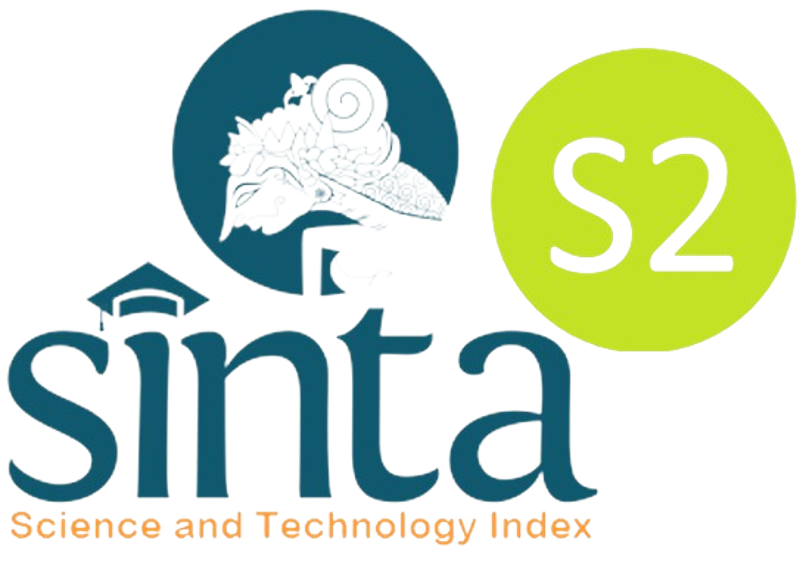Parent’s Involvement in Early Childhood Education during the Covid-19 Pandemic Period
Abstract
Abstract: Parent’s Involvement in Early Childhood Education during the Covid-19 Pandemic Period. Objectives: This study aims to describe how the parent’s involvement in providing children’s education at home during the Covid-19 pandemic at the Kindergarten level. Methods: This study used a quantitative descriptive study through a survey method with 40 kindergarten parents in East Java selected by stratified random sampling technique. The research instrument was a Guttman scale questionnaire to ensure the results of research regarding the unity of dimensions and attitudes or traits under study. Findings: Types of parent’s involvement in early childhood education during the Covid-19 Pandemic period were realized through: (1) nurturing, (2) two-way communication, (3) home learning strategies, and (4) decision making. Conclusions: Parents, especially mothers played an active role in providing children’s education at home during the Covid-19 pandemic.
Keywords: parent’s involvement, children’s education at home, Covid-19 pandemic.
Abstrak: Keterlibatan Orang Tua dalam Pendidikan Anak Usia Dini Selama Masa Pandemi Covid-19. Tujuan: Penelitian ini bertujuan untuk mendeskripsikan bagaimana keterlibatan orang tua dalam memberikan pendidikan anak di rumah selama masa pandemi Covid-19 pada jenjang Taman Kanak-kanak (TK). Metode: Penelitian ini menggunakan penelitian deskriptif kuantitatif melalui metode survei dengan 40 orang tua TK di Jawa Timur yang diseleksi dengan teknik stratified random sampling. Instrumen penelitian adalah kuisioner skala Guttman untuk meyakinkan hasil penelitian mengenai kesatuan dimensi dan sikap atau sifat yang diteliti. Temuan: Tipe keterlibatan orang tua dalam pendidikan anak usia dini selama masa Pandemi Covid-19 diwujudkan melalui: (1) pengasuhan, (2) komunikasi dua arah, (3) strategi belajar di rumah, dan (4) pengambilan keputusan. Kesimpulan: Orang tua, terutama Ibu berperan aktif dalam memberikan pendidikan anak di rumah selama masa pandemi Covid-19.
Kata kunci: keterlibatan orang tua, pendidikan anak di rumah, pandemi Covid-19.
Full Text:
PDFReferences
Abdurrahman, An Nahlawi. (2004). Pendidikan Islam di rumah sekolah dan masyarakat. Jakarta: Gema Insani Press.
Amini, M. (2015). Profil keterlibatan orang tua dalam pendidikan anak usia TK. Jurnal Ilmiah VISI PPTK PAUDNI, 10(1), 9–20.
Christenson, S. L. (2004). The family-school partnership: An opportunity to promote the learning competence of all students. School Psychology Review, 33, 83–104.
Desiningrum, Dinie Ratri, (2016). Psikologi anak berkebutuhan khusus. Yogyakarta: Psikosain
Djamarah, Syaiful Bahri. (2008). Psikologi belajar. Jakarta: Rineka Cipta
Drenovsky, C. K., & Cohen, I. (2012). The impact of homeschooling on the adjustment of college students. International Social Science Review, 87(1 & 2), 19–34.
Driessen, G. et al. (2005). Parental involvement and educational achievement. British Educational Research Journal, 31(4), 509-532
Eckert, T. L., McIntyre, L. L., DiGennaro, F. D., Arbolino, L., Begeny, J., & Perry, L. J. (2008). Researching the transition to kindergarten for typically developing children: A literature review of current processes, practices, and programs. In D. H. Molina (Ed.), School psychology: 21st century issues and challenges (pp. 235–252). Hauppauge, NY: Nova Science Publishers.
Eipstein, J. L., Sanders, M. G., Simon, B. S. et al. (2002). School, family and community partnerships, your handbook for action: second edition. Thousand Oaks, California: Corwin Press.
Fields-Smith, C., & Kisura, M. W. (2013). Resisting the status quo: The narratives of black homeschoolers in Metro-Atlanta and Metro-DC. Peabody Journal of Education, 88(3), 265–283.
Guterman, O., & Neuman, A. (2017). Schools and emotional and behavioral problems: A comparison of school-going and homeschooled children. The Journal of Educational Research, 110(4), 425–432.
Henniger, M. L. (2013). Teaching young children: An introduction, 5th edition. U.S.A: Pearson Education. Inc.
Hornby, G. (2011). Parental involvement in childhood education: Building effective school-family partnership. New York: Springer Sciencet Business Media.
Jackson, K., & Remillard, J. T. (2005). Rethinking parent involvement: African American mothers construct their roles in the mathematics education of their children. The School Community Journal, 15(1), 51-73.
Korfmacher, J. et al. (2008). Parent involvement in early childhood home visiting. Springer Science + Bussiness Media, LLC: Child Youth Care Forum, DOI 10.1007/s 10566-008-9057-3.
McMillan, J. H., & Schumacher, S. (2001). Research in education: A conceptual introduction (5th ed.)
Mendez, J.L. (2010). How can parents get involved in preschool? barriers and engagement in education by ethnic minority parents of children attending head start. Cultural Diversity and Ethnic Minority Psychology Journal, 16 (1), 26–36.
Muhibbin, Syah. (2000). Psikologi pendidikan dengan pendekatan baru. Bandung: Remaja Rosdakarya
Nazir, (2011). Metode penelitian. Cetakan 6. Bogor: Penerbit Ghalia
Pinantoan, A. (2013). The effect of parental involvement on academic achievement, 22 September 2013. Retrieved January 01, 2014
Pomerantz, E.M. et al. (2007). The how, whom, and why of parent’s involvement in children’s academic lives: More is not always better. American Educational Research Association, 77(3), 373-410
Powell, D.R. (2000). Relation between families and early childhood programs. Http://Ecap.crc.illionis.edu/pubs/connecting/powell.pdf 141-154
Purwanto. (2004). Prinsip-prinsip dan teknik evaluasi pengajaran. Bandung: Rosdakarya.
Rimm-Kaufman, S., & Pianta, R. (2005). Family-school communication in preschool and kindergarten in the context of a relationship-enhancing intervention. Early Education and Development, 16, 287–313.
Risti, V. (2014). Role of parent involvement in early childhood program overview from Reggio Emilia Approach in Yogyakarta. Dalam Adriani, V. (Penyunting). Proceeding of International Conference of Early Childhood Education (ICECE) 1, (hlm. 178-184).
Sapungan, G.M., & Sapungan R.M. (2014). Parental involvement in child’s education: Importance, barriers an benefit”. Asian Journal of Management Sciences & Education, 3(2), 42-48.
Steede, K. (2007). 10 Kesalahan orang tua dalam mendidik anak; solusi bijak untuk menghindarinya. Jakarta: Tangga Pustaka.
Sugiyono. (2010). Metode penelitian pendidikan: pendekatan kuantitatif, kualitatif, dan R&D [Educational research methods: quantitative, qualitative, and r&d approaches] .Bandung: Alfabeta.
Undang-Undang Republik Indonesia, No. 20, Tahun 2003, Tentang sistem pendidikan nasional.
Uno, Hamzah B. (2007). Teori motivasi dan pengukurannya. Jakarta: Bumi Aksara
Refbacks
- There are currently no refbacks.
Copyright (c) 2020 Jurnal Pendidikan Progresif

This work is licensed under a Creative Commons Attribution-ShareAlike 4.0 International License.
View My Stats

The copyright is reserved to The Jurnal Pendidikan Progresif that is licensed under a Creative Commons Attribution-ShareAlike 4.0 International License.






